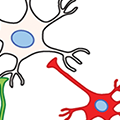Reviews To Read – June 14, 2018. This review, which is part of a special issue of Psychopharmacology on “Extinction” summarizes recent research on similarities and differences in the neuronal mechanisms of context-induced relapse after extinction-imposed abstinence (the classical model) versus context-induced relapse after punishment-imposed abstinence (the new model).
News Main
Navigating Your Life Without Losing Yourself
Tuesday June 19, 2018 • 2 – 3 pm in the BRC Atrium Panel discussion on mental health in college & career Topics will include: Self-identity Managing recovery Managing stress and workload Warning signs Seeking support and help Mentoring students Supporting marginalized students Advocating for yourself Bring your questions for the panelists or submit anonymously via… [Read More]
Delta Rhythm Orchestrates the Neural Activity Underlying the Resting State BOLD Signal via Phase–amplitude Coupling.
Featured Paper of the Month – June 2018
Published in Cerebral Cortex by Jaime, Saul; Gu, Hong; Sadacca, Brian F; Stein, Elliot A; Cavazos, Jose E; Yang, Yihong; Lu, Hanbing
Our brains always work, consciously or unconsciously. Functional connectivity MRI has identified so-called resting state brain networks (e.g. default mode network). Aberrant activity in such networks is implicated in neurological and psychiatric disorders. This work applies simultaneous electrophysiological recording and functional MRI to investigate the neurophysiological basis of the network activity…
The Coffeehouse: Art of Recovery
The NIDA Eliminating Stigma Team held its first coffeehouse event on Thursday May 10th, titled “The Coffeehouse: Art of Recovery.” The audience experienced powerful stories of struggle and triumph over mental illness and drug addiction through performances and presentations of poetry, spoken word, visual art, photography, and music. The event turned the atrium into a… [Read More]
The Coffeehouse: Art of Recovery
Join the NIDA IRP for an Eliminating Stigma Series event. Experience stories of struggle and triumph over addiction and mental illness through spoken word, art, and music. Coffee and light refreshments will be served. May 10, 1:00 pm – 2:30 pm in the Biomedical Research Center Atrium.
Fentanyl-Induced Brain Hypoxia Triggers Brain Hyperglycemia and Biphasic Changes in Brain Temperature.
Featured Paper of the Month – May 2018
Published in Neuropsychopharmacology by Solis, Ernesto Jr; Cameron-Burr, Keaton T; Shaham, Yavin; Kiyatkin, Eugene A
Fentanyl is a potent synthetic opioid used clinically to treat pain and as a general anesthetic. Recently, fentanyl has emerged as a recreational drug and its overdose has been linked to numerous deaths in the US. To better understand how fentanyl affects the brain, we used electrochemical techniques in rats and examined the effect of intravenous fentanyl on oxygen and glucose levels in the nucleus accumbens, a brain region implicated in reward and addiction…
Yihong Yang inducted as a Fellow of the American Institute for Medical and Biological Engineering
The American Institute for Medical and Biological Engineering (AIMBE) has announced the induction of Yihong Yang, Ph.D., Senior Investigator and Chief of the Magnetic Resonance Imaging and Spectroscopy Section, National Institute on Drug Abuse, National Institutes of Health to its College of Fellows. Dr. Yang was nominated, reviewed, and elected by peers and members of… [Read More]
Discovery and development of varenicline for smoking cessation
Reviews To Read – April 3, 2018. from the Addiction Biology Unit Quitting smoking is challenging. The recent development of varenicline (Chantix®) for smoking cessation is a successful story. In this article, we review the strong theoretical rationale, major findings in preclinical and clinical studies with varenicline, and post-market surveillance. We also discuss current major… [Read More]
Lateral Preoptic Control of the Lateral Habenula through Convergent Glutamate and GABA Transmission.
Featured Paper of the Month – April 2018
Published in Cell Reports by Barker, David J; Miranda-Barrientos, Jorge; Zhang, Shiliang; Root, David H; Wang, Hui-Ling; Liu, Bing; Calipari, Erin S; Morales, Marisela
The lateral habenula (LHb) is a brain structure that participates in cognitive and emotional processing and has been implicated in several mental disorders. Although one of the largest inputs to the LHb originates in the lateral preoptic area (LPO), little is known about how the LPO participates in the regulation of LHb function. In their recent study, Barker and colleagues provide evidence that the LPO exerts bivalent control over the LHb through the convergent transmission of excitatory LPO glutamate and inhibitory LPO g-aminobutyric acid (GABA) onto single LHb neurons…
NIDA IRP presents awards at the 2018 Baltimore Science Fair
The Baltimore Science Fair was held this past weekend at Towson University. Over 100 middle school and high school students from Baltimore City, Baltimore, Carrol, Cecil, Harford, and Howard Counties participated, spending many hours on Saturday describing their work to a LOT of judges. Judges came from all over, including FDA, other NIH institutes, US… [Read More]










